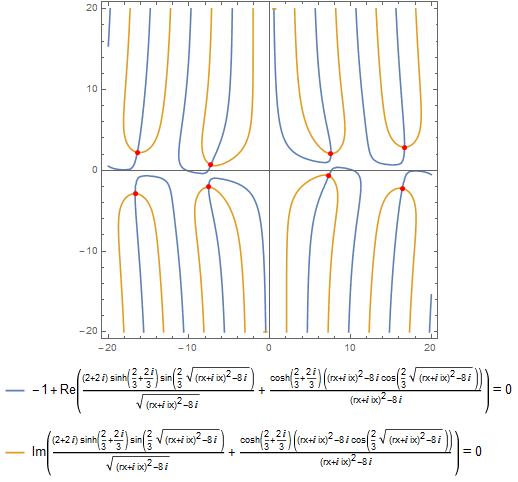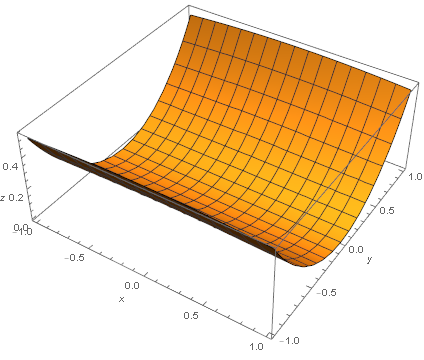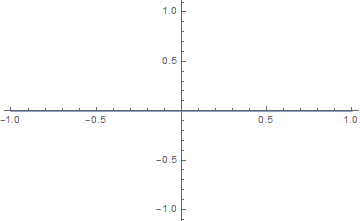Solve is a really powerful function and its capabilities are much more extensive than polynomial equations as the other answers suggest. It can deal with many transcendental equations, however it doesn't imply that this is the case here. Taking a look at the given equation we expect there exist many (most likely infinitely many) complex solutions, while real solutions are more restricted. I recommend switching to Reduce since one could expect full-dimensional components of the solution set (see e.g. What is the difference between Reduce and Solve?). Another remarkable reason may appear when certain more involved mathematical structure is hidden behind the equations (see e.g. How to get intersection values from a parametric graph? where Reduce works fine while Solve did not at least in version 9).
If we are to solve the equation only in reals we could substitute x -> z == x^2 - y^2 and obtain formally simpler equation equivalent under suitable conditions. Then we get ranges of z to be a solution of the underlying equation.
Reduce[((z + y^2 - y^2 Cos[2/3 Sqrt[z]]) Cosh[y/3])/
z + (y Sin[2/3 Sqrt[z]] Sinh[y/3])/Sqrt[z] - 1 == 0 && z >= 0 && y ∈ Reals, {x, y}]
C[1] ∈Integers && ((C[1] >= 0 &&
z == 1/4 (9 π^2 + 36 π^2 C[1] + 36 π^2 C[1]^2) &&
y == 0) || ((-π + (2 Sqrt[z])/3)/(2 π) \[NotElement]
Integers && Tan[Sqrt[z]/3] != 0 && ((C[1] >= 0 &&
1/4 (9 π^2 + 72 π^2 C[1] + 144 π^2 C[1]^2) < z <
1/4 (81 π^2 + 216 π^2 C[1] + 144 π^2 C[1]^2)) ||
0 < z < (9 π^2)/4 || (C[1] >= 1 &&
1/4 (9 π^2 - 72 π^2 C[1] + 144 π^2 C[1]^2) < z <
1/4 (9 π^2 + 72 π^2 C[1] + 144 π^2 C[1]^2))) &&
y == 0) || (C[1] >= 1 && z == 9 π^2 C[1]^2 && y == 0))
The solution set can be illustrated with e.g.
ContourPlot[((z + y^2 - y^2 Cos[2/3 Sqrt[z]]) Cosh[y/3])/z
+ (y Sin[2/3 Sqrt[z]] Sinh[y/3])/Sqrt[z] - 1 == 0,
{z, 0, 15}, {y, -15, 15}]
When we are to find complex solutions we sholud restrict ranges of the variables and when two variables are given we could find solutions of e.g. x given a specific value of y, a detailed discussion can be found e.g. here Solve symbolically a transcendental trigonometric equation and plot its solutions
Define
f[x_, y_] := ((x^2 - y^2 Cos[2/3 Sqrt[x^2 - y^2]]) Cosh[y/3])/(x^2 -
y^2) + (y Sin[2/3 Sqrt[x^2 - y^2]] Sinh[y/3])/Sqrt[x^2 - y^2] - 1
Let's find all exact solutions x such that Abs[x] < 20 given y == 2 + 2I:
roots = x /. {ToRules @ Reduce[ f[x, 2 + 2 I] == 0 && Abs[x] < 20, x] //
Quiet};
there are eight of them (evaluate Length[roots]) given in terms of the root objects. We plot them in the complex plane of x:
g[rx_, ix_] := f[rx + I ix, 2 + 2 I]
ContourPlot[{Re[ g[rx, ix]] == 0, Im[ g[rx, ix]] == 0},
{rx, -20, 20}, {ix, -20, 20}, Evaluated -> True,
PlotLegends -> Placed["Expressions", Below],
Epilog -> {Red, PointSize -> 0.015, Point[ReIm[roots]]},
Axes -> True]]

There are infinitely many solutions without the condition Abs[x] < 20 of course. Here are numeric approximations for Abs[x] < 20:
N @ roots
{ -16.6788 - 2.8779 I, -16.4053 + 2.22766 I, -7.57289 - 2.06311 I,
-7.3023 + 0.684591 I, 7.3023 - 0.684591 I, 7.57289 + 2.06311 I,
16.4053 - 2.22766 I, 16.6788 + 2.8779 I}




Solve deals primarily with linear and polynomial equations.From help $\endgroup$Solveof this equation. In this context the remark from the help page is misleading. $\endgroup$